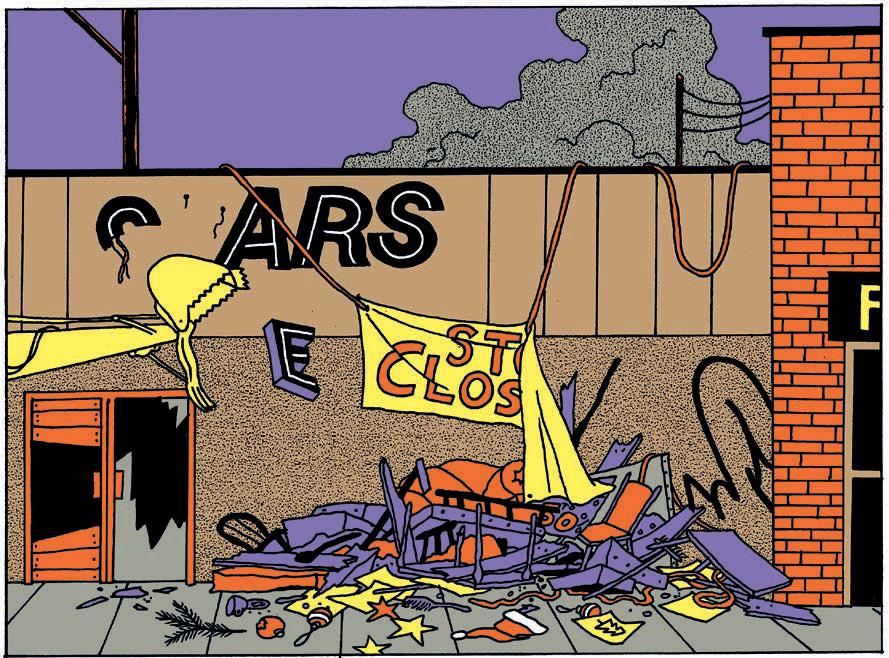
Barely three decades ago, Sears was the world’s largest retailer. And this time of year its stores, once a fixture in malls across America, would be crowded with holiday shoppers snapping up clothing, home goods, appliances or toys that their kids had carefully circled on the pages of the retailer’s venerable Christmas Wish Book.
This holiday season the company barely exists, with fewer than two dozen full-size stores in operation, compared with the more than 3,500 Sears and Kmart stores operated by Sears Holdings Corp. at its height. In most malls the chain’s once- hulking emporiums have been subdivided into smaller spaces for other stores, refashioned for non retail operations such as medical offices or gyms, or simply left vacant. The Sears estate in late October finally wrapped up its acrimonious four-year-long bankruptcy, but the company’s diminished size and uncertain future are an ignominious comedown for a company that for more than a century defined American retailing.
It wasn't supposed to end this way. Yes, Sears had long been in decline. And a changing retail landscape had seen the rise of specialty apparel chains, discounters, big-box stores and most recently e-commerce giants such as Amazon.com Inc. all eat away at the company's hold on consumers. But years of underinvestment and dismantling under the stewardship of its would-be savior, hedge fund manager Eddie Lampert, also helped bring the company to this moment: signature brands including Craftsman and DieHard gone, as well as most of the jobs that Lampert's purchase was supposed to preserve.
This story is from the November 21 - 28, 2022 (Double Issue) edition of Bloomberg Businessweek US.
Start your 7-day Magzter GOLD free trial to access thousands of curated premium stories, and 9,000+ magazines and newspapers.
Already a subscriber ? Sign In
This story is from the November 21 - 28, 2022 (Double Issue) edition of Bloomberg Businessweek US.
Start your 7-day Magzter GOLD free trial to access thousands of curated premium stories, and 9,000+ magazines and newspapers.
Already a subscriber? Sign In

Instagram's Founders Say It's Time for a New Social App
The rise of AI and the fall of Twitter could create opportunities for upstarts

Running in Circles
A subscription running shoe program aims to fight footwear waste

What I Learned Working at a Hawaiien Mega-Resort
Nine wild secrets from the staff at Turtle Bay, who have to manage everyone from haughty honeymooners to go-go-dancing golfers.

How Noma Will Blossom In Kyoto
The best restaurant in the world just began its second pop-up in Japan. Here's what's cooking

The Last-Mover Problem
A startup called Sennder is trying to bring an extremely tech-resistant industry into the age of apps

Tick Tock, TikTok
The US thinks the Chinese-owned social media app is a major national security risk. TikTok is running out of ways to avoid a ban

Cleaner Clothing Dye, Made From Bacteria
A UK company produces colors with less water than conventional methods and no toxic chemicals

Pumping Heat in Hamburg
The German port city plans to store hot water underground and bring it up to heat homes in the winter

Sustainability: Calamari's Climate Edge
Squid's ability to flourish in warmer waters makes it fitting for a diet for the changing environment

New Money, New Problems
In Naples, an influx of wealthy is displacing out-of-towners lower-income workers